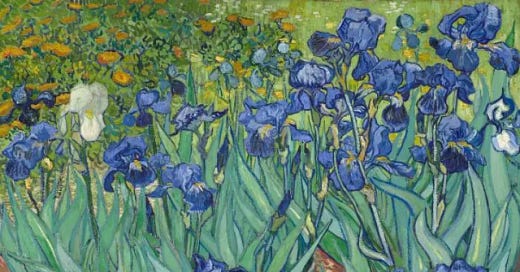What does "Perennial" mean?
It's a word you need to know if you're a gardener or a philosopher--and you should be a gardener and a philosopher!
In very broad terms, there are two kinds of plants that you might add to your decorative garden: “annuals,” which need to be planted again each year, and “perennials,” which can endure the winter and will rise again each Spring.
Mom likes to put annuals in the pots on the front porch, but those irises that come up each year by the mailbox—those are perennials.
Perennial means “through the year.” It’s a very useful term in gardening, but you’ll also hear it sometimes in big-brained philosophy talk to describe any idea that transcends local time and place. A good example is stoicism, which basically teaches people to be tough even in difficult times and situations. It’s regarded as a perennial philosophy, because even if a particular set of stoic books was lost, the idea would pop up again somewhere else. It’s perennial because it’s true.
Marcus Aurelius was one of the famous stoic philosophers from the ancient Roman period. He often spoke perennial truths. Here’s one:
To hold fast to the divine spirit within, and serve it loyally, is all that is needful. (Meditations II.13)




